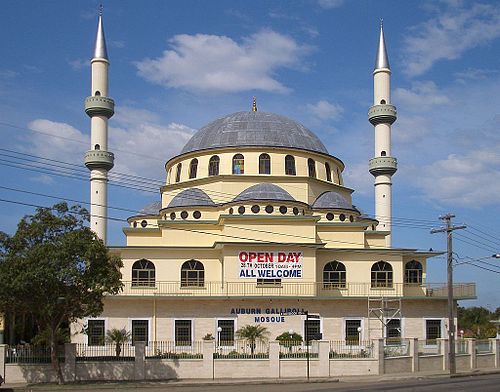| Auburn Gallipoli Mosque | |
|---|---|
 The mosque in 2007 | |
| Religion | |
| Affiliation | Islam |
| Rite | Sunni Islam |
| Ecclesiastical or organisational status | Mosque |
| Status | Active |
| Location | |
| Location | Auburn, Sydney, New South Wales |
| Country | Australia |
Location in greater metropolitan Sydney | |
| Geographic coordinates | 33°51′08″S151°02′10″E / 33.85234°S 151.035976°E |
| Architecture | |
| Architect(s) |
|
| Type | Mosque architecture |
| Style | Classical Ottoman |
| Date established | 1979 (as a congregation) |
| Groundbreaking | 1986 |
| Completed | 28 November 1999 |
| Construction cost | A$6 million |
| Specifications | |
| Capacity | c. 2,000 worshipers |
| Dome(s) | 1 |
| Minaret(s) | 2 |
| Website | |
| www | |
| [1] | |
The Auburn Gallipoli Mosque is an Ottoman-style mosque in Auburn, a suburb of Sydney, New South Wales, Australia. More than 500 worshippers attend every day and around 2,000 worshippers attend the weekly special Friday prayer at the Auburn Gallipoli Mosque. [2]

